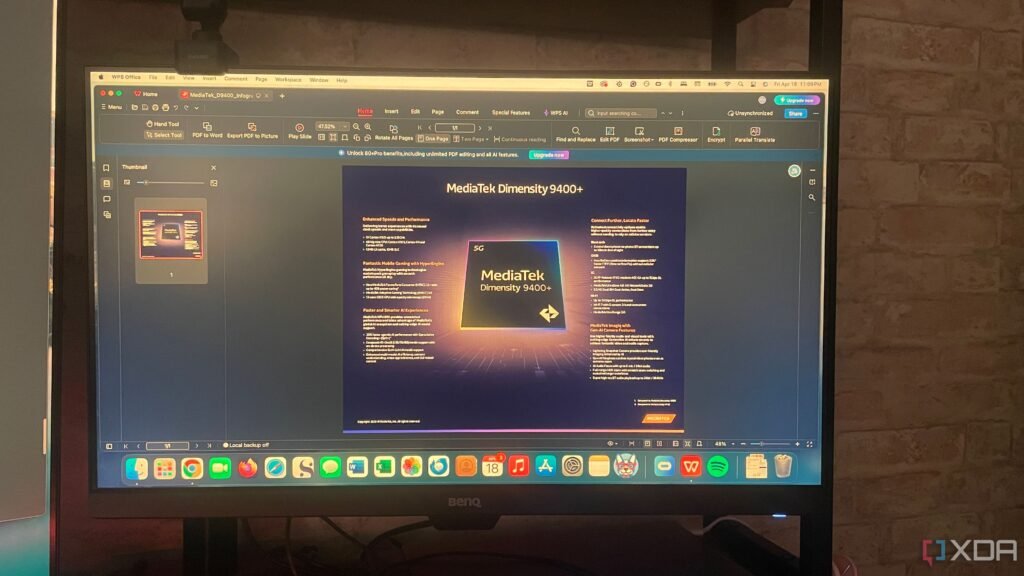✅Accelerating at 30.6% CAGR, Market Growth Driven by EV Infrastructure Development
According to the latest study by Persistence Market Research, the stationary electric vehicle (EV) charging gun market is projected to grow significantly from US$ 449.2 Mn in 2025 to US$ 2,917.4 Mn by 2032, registering an impressive CAGR of 30.6% over the forecast period. This robust growth is primarily driven by the global shift toward sustainable transportation, increased sales of electric vehicles, and expanding investment in EV charging infrastructure. As governments and private enterprises focus on decarbonizing transportation systems, the demand for reliable, safe, and efficient EV charging components-particularly stationary charging guns-is rising rapidly.
Stationary EV charging guns are critical connectors in EV charging stations, enabling the safe transfer of electricity between chargers and vehicle batteries. These devices are especially pivotal in urban charging stations, public infrastructure, and residential setups where fixed installations are more viable. The market’s leading segment is DC (direct current) charging guns, due to their ability to offer faster charging speeds, making them ideal for commercial and public stations. Geographically, Asia Pacific dominates the global market, largely owing to aggressive EV deployment in China, South Korea, and Japan, coupled with substantial government subsidies, large-scale infrastructure rollouts, and strong domestic manufacturing capabilities.
Get a Sample PDF Brochure of the Report (Use Corporate Email ID for a Quick Response): https://www.persistencemarketresearch.com/samples/35051
✅Key Market Insights
➤ The market is expected to grow more than six-fold by 2032 due to soaring global EV sales and supportive regulatory frameworks.
➤ DC charging guns hold the largest market share because of their efficiency in fast-charging applications, especially in urban and commercial environments.
➤ Asia Pacific leads the global market due to high EV penetration, government mandates, and regional manufacturing advantages.
➤ Integration of smart technologies like RFID, wireless communication, and temperature control in charging guns is shaping product evolution.
➤ Public-private collaborations in building EV charging networks are accelerating product deployment in key urban centers.
✅What is the function of a stationary EV charging gun?
A stationary electric vehicle charging gun is a fixed connector used to deliver electricity from a charging station to an electric vehicle. It ensures secure, high-efficiency power transfer, typically supporting either AC or DC charging. These guns are crucial in public and residential charging setups, where durability and consistent performance are essential. With safety features like temperature sensors and secure locking mechanisms, they minimize risks of overheating or electric faults. As EV adoption grows, stationary charging guns are becoming indispensable components of modern EV infrastructure, promoting safe and reliable energy transmission between grids and vehicles.
✅Market Dynamics
Drivers:
The primary driver of the stationary EV charging gun market is the exponential rise in electric vehicle sales globally. Governments are enforcing emission norms and offering subsidies, which has spurred EV adoption. Additionally, growing investments in EV infrastructure-especially fast-charging stations-are directly boosting demand for stationary charging guns. The emphasis on urban mobility and smart city development is also driving product deployment.
Market Restraining Factor:
Despite the promising outlook, the market faces challenges related to standardization of charging interfaces, high initial infrastructure costs, and the complexity of integrating new technologies into legacy systems. Furthermore, the high cost of fast-charging equipment may deter small-scale operators from investing in stationary setups.
Key Market Opportunity:
There is a substantial opportunity in emerging markets and suburban areas, where EV infrastructure is still in the development phase. The increasing focus on renewable integration and energy-efficient urban planning also offers scope for the adoption of smart stationary EV charging guns in both public and residential environments.
✅Market Segmentation
The stationary electric vehicle charging gun market is broadly segmented based on charging type, connector type, vehicle type, and end-use applications. By charging type, the market is divided into AC charging guns and DC charging guns. DC charging guns dominate due to their capability to deliver high power output in a short time, making them suitable for fast-charging stations along highways, in urban centers, and commercial facilities. AC guns, although slower, remain in use in home and private workplace settings due to lower installation costs.
In terms of vehicle type, the market includes passenger vehicles, commercial vehicles, and public transport systems. Passenger vehicles constitute the largest user group due to the rising ownership of EVs among private users. However, commercial vehicles and fleet operators are emerging as strong demand centers, especially for fast-charging infrastructure. On the basis of end use, applications range from residential charging setups to public and commercial charging stations, with the latter holding a dominant share due to rising public infrastructure investments.
✅Regional Insights
Asia Pacific is the leading region in the global stationary EV charging gun market, accounting for a significant market share, particularly driven by China’s dominance in EV adoption and infrastructure development. The country’s “New Energy Vehicle” (NEV) policy and aggressive EV manufacturing ecosystem ensure continuous demand for related components, including stationary charging guns. Additionally, South Korea and Japan are witnessing a rise in homegrown EV brands, along with government-led initiatives to expand charging stations.
North America and Europe are also key contributors, fueled by strong environmental regulations, EV incentives, and cross-border charging infrastructure collaborations. The United States is focusing on electrifying public transport and logistics, while countries like Germany, Norway, and the Netherlands in Europe are leaders in fast-charging infrastructure deployment. Latin America, the Middle East, and Africa are in nascent stages but show potential as government policies evolve to support EV integration and infrastructure rollout.
✅Competitive Landscape
The stationary EV charging gun market is moderately consolidated, with established manufacturers and new entrants focusing on innovation, standardization, and cost-effectiveness. Companies are investing in R&D to develop lightweight, durable, and high-capacity guns with smart features such as app connectivity, biometric access, and automated diagnostics.
✅Company Insights
✦ Tesla, Inc.
✦ ABB Ltd.
✦ Siemens AG
✦ Schneider Electric SE
✦ ChargePoint, Inc.
✦ Delta Electronics
✦ BYD Company Limited
✦ TGOOD Global Ltd.
✦ Webasto Group
✦ Leviton Manufacturing Co., Inc.
✦ Phihong Technology Co., Ltd.
For Customized Insights on Segments, Regions, or Competitors, Request Personalized Purchase Options @ https://www.persistencemarketresearch.com/request-customization/35051
✅Key Industry Developments
In recent years, several companies have announced collaborations and product launches aimed at scaling up EV infrastructure. Tesla has begun expanding its Supercharger network across multiple geographies and updating its proprietary charging guns to support both Tesla and non-Tesla vehicles. Meanwhile, ABB launched a new series of high-speed DC charging guns compatible with its Terra series chargers, enhancing interoperability across platforms.
Siemens and Delta Electronics have jointly developed charging modules designed for urban smart stations, emphasizing sustainable materials and IoT compatibility. Government bodies in Europe and North America have also funded new EV corridor projects, further accelerating the demand for high-efficiency stationary charging connectors.
✅Innovation and Future Trends
Innovation in stationary EV charging guns is centered around durability, interoperability, and smart connectivity. New models now feature liquid-cooled cables, real-time thermal sensors, and AI-powered diagnostics to improve safety and reduce wear. These innovations are critical for fast-charging environments where heat management and system longevity are vital.
Looking forward, the market will also see the rise of wireless charging-enabled stationary guns, integration with vehicle-to-grid (V2G) technologies, and solar-assisted systems. Automation, including robotic arms for contactless charging, is expected to become mainstream in commercial fleet depots and public charging stations, driving the evolution of user-friendly and efficient charging infrastructure.
✅Explore the Latest Trending “Exclusive Article” @
•
•
•
•
• https://vocal.media/stories/automotive-blind-spot-detection-system-market-trends-highlight-shift-towards-integrated-safety-solutions
✅Contact Us:
Persistence Market Research
G04 Golden Mile House, Clayponds Lane
Brentford, London, TW8 0GU UK
USA Phone: +1 646-878-6329
UK Phone: +44 203-837-5656
Email: sales@persistencemarketresearch.com
Web: https://www.persistencemarketresearch.com
✅About Persistence Market Research:
At Persistence Market Research, we specialize in creating research studies that serve as strategic tools for driving business growth. Established as a proprietary firm in 2012, we have evolved into a registered company in England and Wales in 2023 under the name Persistence Research & Consultancy Services Ltd. With a solid foundation, we have completed over 3600 custom and syndicate market research projects, and delivered more than 2700 projects for other leading market research companies’ clients.
Our approach combines traditional market research methods with modern tools to offer comprehensive research solutions. With a decade of experience, we pride ourselves on deriving actionable insights from data to help businesses stay ahead of the competition. Our client base spans multinational corporations, leading consulting firms, investment funds, and government departments. A significant portion of our sales comes from repeat clients, a testament to the value and trust we’ve built over the years.
This release was published on openPR.









